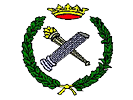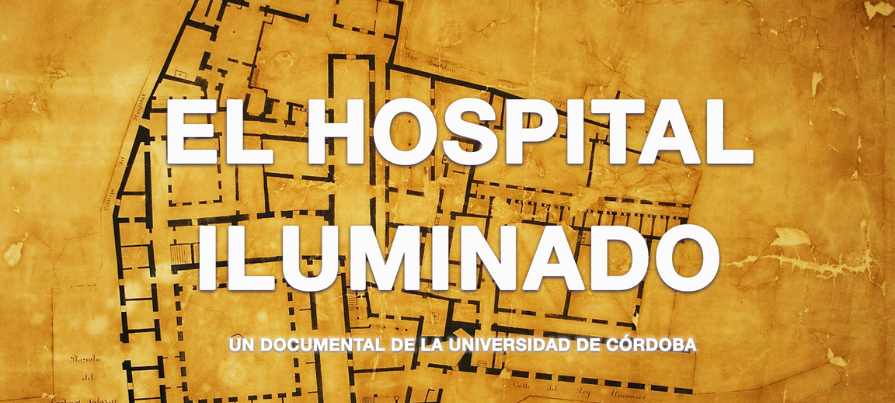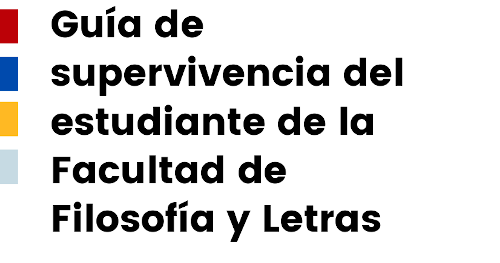Before your Arrival
You must be officially nominated by your home University. an email with your name, field of study, number of months, email adress and home University needs to be sent to incoming@uco.es
Then you will have to register here
Faculties and schools participating in an exchange programme offer an International tutorship service. Tutors will aid exchange stuidents in finding accommodation, getting around Córdoba of filling out the requiered registration forms. (tutoreserasmus@gmail.com)
Upon your Arrival
Go to the International Office at Rectorado (Av. Medina Azahara, 3) to obtain the registration code duly signed, then you should enrol in Secretaría Facultad Filosofía y Letras (Plaza del Cardenal Salazar, 3)
Before your Arrival
You must be officially nominated by your home University. An email with your name, field of study, number of months, email address and home University needs to be sent to internacional_ffl@uco.es
You will have to register online before:
- 30 June for semester one or full year students
- 31 December for semester two students
For online registration form, click here
Faculties and schools participating in th Erasmus programme offer an Eramus tutorship service. Tutors will aid exchange students in finding accommodation, getting around Córdoba or filling out the required registration forms. (tutoreserasmus@gmail.com)
Upon your Arrival
Upon your arrival you will be asked to submit the following documents:
- European Health Insurance Card (EHIC). The EHIC can be obtained at the Health Department in your home country
- Accident and travel insurance
- Valid Passport or identity card
- Certificate of Arrival
You must go to the international Office at Facultad de Filosofía y Letras
Once you have decided which courses you will take at our faculty, you will need to enroll officially at those courses. For Enrollment you will need to go to the Secretary Office
ECTS
What is the ECTS?
The Erasmus programme has proven to be not only an enriching experience and the best opportunity for you to travel, to broaden your horizons, and to gain insight into a different way of life, language and culture, but also an important and increasingly valuable asset to enhance your academic development and improve your employment prospects.
In order to ensure that students get the most out of their placement abroad, the European Commission introduced the ECTS (European Credit Transfer System). ETCS is a tool that facilitates the recognition of students’ workload and credit transfer when returning to their home institution, although this system also functions within a single institution or between institutions of the same country.
The ECTS is based on three key features:
- Information on study programmes and students’ learning outcome
- Mutual recognition between member institutions and the student
- Use of ECTS credits to measure student workload.
ECTS does not regulate contents, structure or equivalences for study programmes. These quality issues are to be determined by the higher education centres themselves when establishing bilateral or multilateral cooperation agreements. The ECTS allocates the number of credits so that students know how many subjects they are required to study in order to successfully complete a study programme.
The ECTS ensures the full recognition of studies. This is what makes ECTS different from any other student mobility programme.
Secretaría
Carmen Fernández
+34 957 212 250
Vicedecanato
Antonio Ruíz
Tutores Internacionales
+957 218 753
Facultad de Filosofía y Letras
Plaza del Cardenal Salazar, 3
14071 - Córdoba
1. - Las tablas de equivalencias publicadas para mi grado no me valen. ¿Puedo hacer otras?
Si. Las tablas refieren a las asignaturas reconocidas en cursos anteriores por los Coordinadores/as. Sobre estas no hay que volver a pedir el reconocimiento, puesto que ya han sido estudiadas y a probadas por los Coordinadores/as respectivos.
Cada vez que un Alumno se va, estudia la oferta de la universidad de destino y elige las asignaturas que le interesan, le envía esa propuesta al Coordinador/a de su grado a través de Moodle
2. - ¿Cómo encuentro las asignaturas que se imparten en la universidad de destino?
Buscando en Google los enlaces para ver los planes de estudio de la universidad correspondiente y, algo muy importante, ver el idioma en el que se imparten.
3. - He llegado a mi destino y se me solapan los horarios de varias asignaturas. ¿Qué puedo hacer?
Buscar nuevas asignaturas o cursos y realizar el mismo proceso de reconocimiento que se hizo al principio de comenzar a hacer el Learning Agreement. Una vez que obtenga estos nuevos reconocimientos, deberá modificar su a Acuerdo de estudios en sigma, con ellos generará un nuevo Learning Agreement, que de nuevo tendrá que ser firmado por las tres partes
Si el alumno no puede realizarlo, por que en ese momento esté cerrado sigma para ellos, deberá enviar un correo a: internacional_ffl@uco.es, con un cuadrante con las modificaciones que necesita hacer.
4. - ¿Es lo mismo Acuerdo de estudios que Learning Agreement?
No. Lo que el alumno realiza en el primer lugar en sigma, es el Acuerdo de Estudios, relaciona las asignaturas que va a realizar en la universidad de destino con las reconocidas en Córdoba.
Una vez que ha realizado esta relación, debe enviar un correo a: internacional_ffl@uco.es para que se le apruebe y se genere el Learning Agreement, que es el documento que le interesa a la universidad de destino y que ha de ser firmado por el alumno, la Universidad de Córdoba y universidad de destino.
5. - ¿Puedo llevarme asignaturas suspensas o de varios cursos?
Sí, siempre que obtenga el reconocimiento de los coordinadores/as internacionales.
6. - ¿Cuántos créditos puedo reconocer como mínimo para obtener la beca Erasmus+?
Si se va un semestre, deberá aprobar como mínimo 9 créditos ECTS.
Si se va el curso Completo, 18 créditos ECTS.
7. - ¿Cuántos créditos como máximo puedo reconocer en mi estancia Erasmus+?
El máximo de créditos reconocidos son los equivalentes a un curso completo más el 10% es decir, en un grado normal serian 55 créditos ECTS. Esta norma tiene la excepción de los itinerarios conjuntos, puesto que académicamente no pueden matricularse de más de 72 créditos ECTS, salvo que lo soliciten al Decano y este se lo conceda si reúne unos requisitos; por tanto, en este caso de los itinerarios conjuntos, puede reconocer un máximo de 72 créditos.






